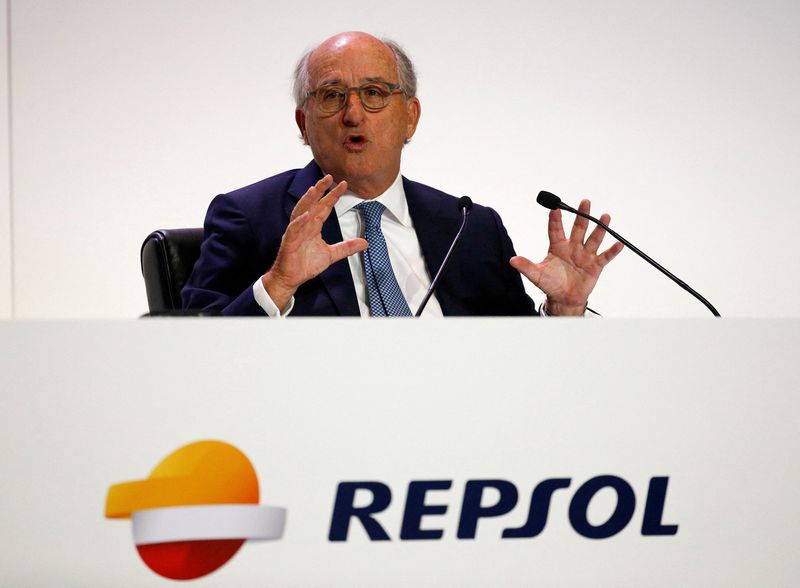MADRID (Reuters) -Spain’s High Court on Monday placed Antonio Brufau, chairman of oil company Repsol, and Isidro Faine, former chairman of Spain’s Caixabank, under formal investigation for a second time as part of a decade-old alleged spying case.
Judge Manuel Garcia Castellon last year dismissed an investigation into Brufau, Faine, Repsol and Caixabank, but three different judges decided on Monday to accept appeals from the prosecutor, the former chairman of construction company Sacyr and left-wing political party Podemos.
Caixabank said in an statement that it was “convinced that these proceedings will lead to a new decision to dismiss the case” and that it would continue cooperating with judicial authorities.
The Caixabank Foundation, which Faine chairs, declined to comment on his behalf.
Repsol did not immediately reply to a request for comment, but it has previously pledged to cooperate fully with judicial authorities.
Faine, Brufau and the companies have previously denied wrongdoing.
The High Court is investigating whether Repsol and Caixabank hired a security firm belonging to former police chief Jose Manuel Villarejo to spy on Luis del Rivero in 2011 and 2012, when he was chairman of Sacyr.
The court is trying to establish whether Repsol and the bank, which at the time held a stake in the oil company, hired Villarejo to help to fend off a takeover bid for Repsol from Sacyr and Mexican state oil company Pemex.
Under the Spanish judicial system no formal charges can be brought until the first phase of investigation is over and being placed under investigation does not necessarily lead to formal indictment.
The investigation is part of a wider inquiry with Villarejo at the centre. The inquiry has roiled Spain’s corporate sector, causing some reputational damage, but with no clear impact on businesses so far.
(Reporting by Emma PinedoAdditional reporting by Jesús Aguado and Isla BinnieEditing by Mark Potter and David Goodman)





















